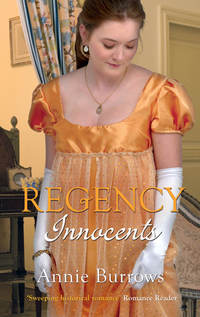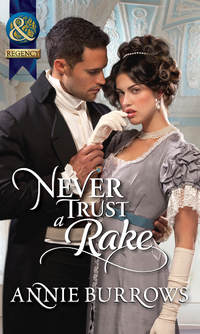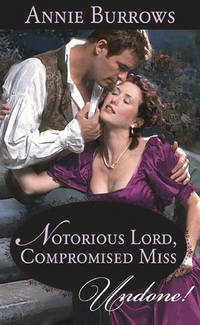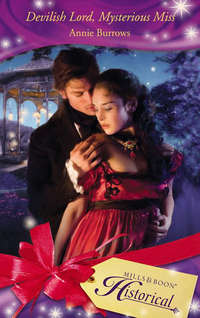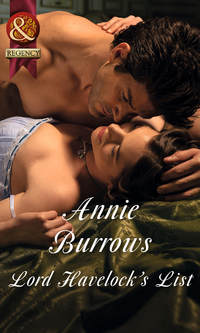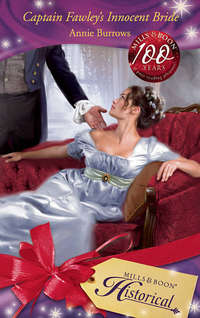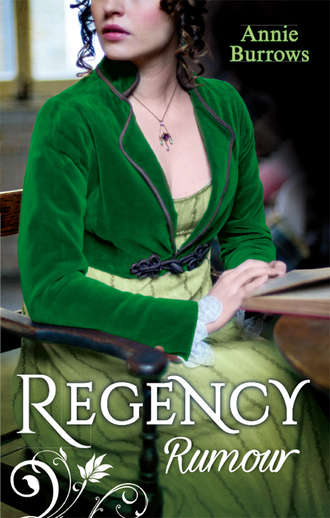
Полная версия
Regency Rumour: Never Trust a Rake / Reforming the Viscount
‘One can expect honourable behaviour,’ she said. ‘I was concealing myself only because I did not wish anyone, especially not a gentleman, to see that I had been crying.’
Now that he could believe. Miss Gibson did not weep prettily. Her nose, which was a shade too large for her rather thin face, was red and running. Her cheeks were mottled and streaked with what looked like not only tears, but horrifically like the effusions from that abomination of a nose.
It made it all the more remarkable for her to have exposed herself to view, in order to intervene in the affairs of two people who were neither her friends, nor, in his case, even a remote acquaintance.
‘I might have known,’ the matron snapped. ‘I hope you are thoroughly ashamed of yourself, young lady. You see what comes of giving way to such a vulgar display of emotion? Not only do you look an absolute disgrace, but your selfish, wilful behaviour has exposed my own, blameless daughter to a situation that might very easily have been misinterpreted!’
Miss Gibson clenched her fists. She looked at the blameless Miss Waverley and took a breath. She was just about to blurt out the truth that would send shock waves rippling through the tranquillity of Miss Twining’s come-out ball, when he saw a look of chagrin cross her face.
Ah. She had just worked out that she could not now tell the complete truth without exposing herself. That was what happened when a woman began to spin a web of lies. She only had to put one foot wrong, to run the risk of becoming hopelessly enmeshed herself.
At least she had the intelligence to see it. She closed her mouth, lifted her chin and regarded the mother in stony-faced silence.
He felt his lips twitch as the gale blew itself out. Really, this was better than a play.
It was perhaps unfortunate that Miss Gibson glanced at him at the exact moment he began to see the humour in the situation. She caught his amused expression and returned it with a scowl that could have curdled milk.
‘Well,’ said the matron, who had missed the exchange of glances, because she’d been busy placing a comforting arm about her thwarted daughter’s shoulders. ‘I can see that you were motivated by the kindness of your heart, my dear, but really, it would have been better to have sought out Miss Gibson’s chaperon and let her deal with it.’
His brief foray into amusement at the absurdity of it all was over. The matron’s attitude was almost as offensive as that of her daughter. Here was a young female, so distressed that she’d run outside to give way to her emotions, and all she was getting was a lecture. It was not right. Somebody ought to be offering her some comfort. After all, females did not weep with such abandon, not in private, without having very good reason. They must know that, surely?
He looked at the mother. At Miss Waverley herself. And frowned.
He did not have much in the way of empathy for the sensibilities of females, but he was clearly the only person out here who felt even the tiniest scrap of it towards the bedraggled Miss Gibson. Not that he would dream of attempting to deal with her personally. He’d never had any success soothing weeping females. On the few occasions he’d attempted to offer consolation to one of his sisters when indulging in a fit of tears, his brand of rational argument had thrown them into something bordering on hysterics.
She needed a sympathetic female. The chaperon that the Waverley woman had mentioned—that was the woman who would know how to deal with her.
He pushed himself off the balustrade. ‘Allow me to rectify that error,’ he said, ‘by performing that office this very minute. If one of you would be so good as to furnish me with her name?’
‘Oh,’ said the matron with a sneer, ‘she is a Mrs Ledbetter. I dare say you would not know her, my lord. Indeed, I cannot think how a woman of her station in life came to secure an invitation to an event such as this.’
He smiled. ‘Indeed. One attends private balls in the expectation of only encountering a better class of person. Mrs Waverley, is it?’
‘Lady Chigwell,’ she simpered.
‘Lady Chigwell,’ he replied, with a bow of acknowledgement. As he straightened up, he caught Miss Gibson’s eye and gave her a wink. But if he had thought she might have relished the thinly veiled snub he had just administered, he was disappointed, meeting only disapproval in her gaze.
Perhaps she had not understood the gesture he had made on her behalf.
‘Miss Gibson,’ he said, closing the distance between them so that he could take her hand, ‘may I tell Mrs Ledbetter you will wait for her out here?’ In an undertone, he added, ‘What does she look like?’
Miss Gibson blinked up at him with eyes that, at close quarters, he could see were still swimming in unshed tears. He squeezed her hand gently, trying to offer her both his gratitude and, somewhat to his surprise, some reassurance. There was not another female in the world, to whom he was not related, who could testify that Lord Deben had shown the slightest hint of concern for her welfare.
But no man, not even one as immune to fellow feeling as people often accused him of being, could fail to be moved by her plight. She had come out here to indulge in a private fit of tears, only to find herself obliged to have her breakdown exposed, and, to crown it all, to have not only her own character, but that of her chaperon quite unjustly ripped to shreds.
‘She is wearing a purple turban,’ she hissed in an undertone, ‘with one white and one purple ostrich feather in it. You really cannot miss it.’ And then, snatching her hand from his, she said, ‘I think it would be for the best if I wait out here.’
‘Yes, indeed,’ put in Miss Waverley in a sugary-sweet voice. ‘You would not want to walk across that ballroom, not as you are. You really need to give your face a good wash before you let anyone see you.’
Miss Gibson hastily swiped at her cheeks with the backs of her hands. The effect, since her gloves were as badly soiled as her gown, was unfortunate.
‘Allow me,’ he said, producing a square of monogrammed white silk from his tailcoat pocket with a flourish and offering it to her.
‘Thank you, sir,’ she said gruffly and proceeded to take it from him with such reluctance that he suspected she would have refused it altogether were she not so desperate.
Why was that? he wondered. If she had taken a dislike to him, as seemed to be the case from the way she glared at him, after blowing her nose with a very unladylike thoroughness, then why had she come to his aid in the first place?
Or perhaps, as she had stated, it was just that she did not like to have any gentleman see her in such an unbecoming state of distress.
That must be it.
He turned, satisfied that he had accounted for the unwarranted hostility he could detect in her attitude, and made his way along the terrace, back to the ballroom.
Now all he had to do was find a woman of advancing years, in an ostrich-feathered purple turban, pass on the information that Miss Gibson was outside awaiting her assistance and he could lay the whole matter to rest.
Although he could not quite shake off an unfamiliar feeling of wishing he could do something to alleviate Miss Gibson’s distress. He’d realised, in the instant the threat of becoming leg-shackled to a creature of Miss Waverley’s calibre loomed before him, that he would rather die than face a marriage such as the one endured by his own father. And he was becoming more and more convinced that Miss Gibson had intervened to save him from just such a fate.
That must be it. She could not bear to see anyone forced into a marriage that was not of their own choosing.
Perhaps that was why she was out here crying. From what Lady Chigwell had said, she was not from a very good family. Perhaps she was being coerced to marry ‘well’ in order to advance their social standing. Perhaps that was what she was doing here tonight. Being put on display, to be sold off like a slave at auction. He had not seen her at her best just now, but her very youth, her very vulnerability, would hold enough appeal to interest several men he knew who were casting about them for wives this Season. It was the way of the world. Older men with money and status could more or less have their pick of the young virgins who came up to town each year to find a husband. The families of said virgins practically sold them off to the highest bidder, no matter what their feelings.
Denied choice in the matter, they eventually rebelled and took lovers of their own choosing.
Having freedom of choice was the one benefit that, as a man, he had which many women were not permitted. And he’d almost thrown it away.
It had been Miss Waverley who had shocked him out of the apathy that had almost led him to make a disastrous error. He held such cynical views of marriage that he’d been on the verge of allowing fate to take the choice out of his hands. Like a gambler, who tossed a coin to determine his next move. He’d thought it would simplify things to remove the element of choice from the equation. No such thing. Marriage, once entered into, was an inescapable bond. Reluctance to enter that state did not excuse a cavalier attitude towards the choice of bride. Though he still could not imagine finding any real pleasure for himself, in marriage, he owed it to his children to thoroughly investigate the character of the woman who would bear them. He would never knowingly foist a parent like his own mother upon poor innocent children. Nor a woman like Miss Waverley.
She might have jolted him out of his fatalistic attitude this evening, but it was only because she epitomised all he most despised in females.
He felt no gratitude towards her whatsoever. And yet, in spite of her intervention being quite unnecessary, the fact that Miss Gibson seemed to have acted out of concern for him did make him feel as though he wished he could repay her in some way.
For nobody, male or female, had ever attempted to rescue him from anything.
Good God. He stood stock still, smiling with unholy mirth at the thought that suddenly struck him. He’d just been rescued by a damsel in distress.
Not that anyone could, by any stretch of the imagination, think of him as a knight in any kind of armour. He fought his battles in the House of Lords, with cutting words rather than at tourneys, with lance and mace.
He turned, he was not entirely sure why, to take one last look at her—and caught Miss Waverley shooting her a look of pure venom.
He’d already ascertained that she was amoral and ruthless. And though Miss Gibson clearly possessed a great deal of courage, she appeared to be socially inferior to the scheming Isabella. Which rendered her vulnerable to the kind of attack he had no doubt the girl would launch at the first available opportunity.
He had wondered how he might repay Miss Gibson for helping him preserve his liberty. Now he knew. Over the next few weeks, at the very least, he would keep a discreet watch over her.
Or heaven alone knew what twisted form of revenge the thwarted Miss Waverley would exact.
Chapter Two
Another day in London.
Henrietta looked out of the drawing-room window at the row of houses across the street from the one her Aunt Ledbetter inhabited, repressing a sigh.
Too many buildings squashed together, too many people thronging the narrow streets, too much noise and bustle, and an overpowering concentration of smells. She had only been here just over a month and already she longed for the peace and quiet of Much Wakering: the wide skies, the sound of birdsong and the scent of blossom.
From her bedroom window she could see just one tree, if she hung out over the windowsill and craned her neck. One miserable, stunted sapling that looked as out of place in its environment as she felt.
‘What did you think of the performance, Miss Gibson?’
Henrietta started and pulled her attention back to her aunt’s guests. Or at least, the one guest who was trying to include her in a conversation to which she had not been giving her full attention. She had hoped that going to sit on a chair on the fringes of the room would have been enough to deter people from obliging her to talk. But Mrs Crimmer was not an easy person to deter from any course upon which she set her mind.
‘The performance? Oh, I, um …’ They had gone to the theatre the night before. In truth, if she were in a better frame of mind, she would have enjoyed the spectacle. But ever since Miss Twining’s ball there had been a cold lump of misery lodged just beneath her breastbone, which not even the most skilled of clowns could alleviate, and a fog of depression hanging round her through which everything she saw seemed grey and unappealing.
As unappealing as she knew herself to be.
The only thing that managed to make her haul herself out of bed in the mornings was the knowledge that if she lay there all day feeling sorry for herself, her aunt would worry. Mrs Ledbetter had done so much more than just accept the responsibility when her father had written to his cousin to ask if she might supervise a Season in London. Mrs Ledbetter had flung herself into the task with an enthusiasm which had taken Henrietta by surprise. At first, she’d been inclined to feel a bit offended by the way ‘Aunt’ Ledbetter had shaken her head and clucked her tongue as she’d watched the maid unpack her clothes. But then she’d never had a female relative supervise her wardrobe, at least not since her mother’s death so many years ago. And any offence soon melted away under the discovery that Mrs Ledbetter did not just enjoy shopping for clothes, but derived enormous pleasure from discovering which colours or styles became her the most. When she wasn’t taking her shopping for garments and all sorts of accessories Henrietta had no idea were absolutely essential, she had hired people to round her off in other ways. A friseur had come to the house to cut and style her hair. A dancing master visited regularly to teach her the steps of all the dances she had always wished she might be able to do, but had never had the opportunity to learn.
And her kindness continued, day after day. She organised trips to the theatre or the latest exhibitions, and took her to musical evenings and dinner parties where she introduced her to all her friends and acquaintances. Nothing was too much trouble. And, considering her own daughter Mildred was at an age to be considering matrimonial prospects herself, she might easily have treated Henrietta as a rival, or a threat, or even just an imposition.
Neither mother nor daughter had done any such thing. They had welcomed her into their circle with open arms.
For their sakes, Henrietta drew on all her reserves of will-power and mustered up a wan smile.
‘We have nothing like it in Much Wakering, Mrs Crimmer,’ she said quite truthfully. ‘So many talented acts, one after another. It was quite, um …’
‘Overwhelming, was it, my dear?’
Mrs Crimmer, the wife of one of Mr Ledbetter’s business contacts, nodded her head in a sympathetic manner. People who lived in London all year round, she had swiftly discovered, tended to look upon provincials with a mixture of pity and contempt.
If Mrs Crimmer had spoken so patronisingly to her three days ago, she would have made a withering retort. Or at least, she corrected herself, she would have bitten one back, for the sake of Mildred’s prospects. For Mr and Mrs Ledbetter were hoping that Mildred would look favourably upon young Mr Crimmer’s suit.
She glanced across the room to where the red-faced young man was paying court, rather bashfully, to Mildred, while Mildred was looking decidedly unimpressed.
Her aunt and uncle, for so she had come to think of them, might have hopes in that direction, but Mildred was looking for more from life than a prosaic match to cement a business alliance. She was looking for romance.
But then Mildred was pretty enough to have romantic aspirations. She had lovely golden hair, wide green eyes and a delicate little nose that made her look like an angelic kitten.
Perhaps that was why they had all accepted Henrietta into the household so readily, she sighed. With her gawky figure and plain face, she posed no threat to her distant cousin. When the pair of them walked into a room, all masculine attention went to Mildred.
Which had not bothered Henrietta in the slightest. She did not want masculine attention. Or at least, she had only ever hankered after the attention of one man.
But even he was beyond her reach now. Three nights ago, he’d finally forced her to accept the fact that she’d been a complete fool to follow him to London. And now she could no longer even pretend to herself that, deep down, she did mean something to him.
She could never have meant anything to him, for him to treat her as he had. She reached out and took a biscuit from the plate set on the table between her and Mrs Crimmer.
She was stuck in town until the end of June, at the very earliest, for she could not bring herself to slink home. Especially not in the light of what he’d said.
You belong in the country, not in a rackety place like London, had been the opinion he’d expressed upon the only occasion he’d called upon her. I shouldn’t wonder at it if you aren’t soon aching to get back to Much Wakering.
It was galling to admit that, in a way, he was correct. She did miss the trees and the tranquillity, and the fact that everyone knew everyone else.
But that didn’t make her a country bumpkin.
It had been a shock to hear Richard—her Richard, as she’d still been thinking of him then—speak to her in such patronising tones. She had only been in town one week, after all, and of course she’d still been a bit wide-eyed and excited.
But that did not mean she would never be able to cope with the sophistication of London society. Why, Richard himself had only acquired his town bronze after several trips. At first, the difference had only been apparent in his appearance. He’d begun to look very smart in clothes bought from a London tailor. And then the way he’d had his hair cut, well, it had drawn gasps of admiration all round. That shock of unruly curls had been tamed into a style that took much of the boyish roundness from his freckled face. He’d no longer looked like the easy-going son of the local squire, but, well, just as she’d always envisioned Paris, the man so handsome goddesses had squabbled over him. But, gradually, she’d sensed an inner change, too. She’d begun to feel uneasily as if he was drawing further and further away from her. And this last Christmas there had been a veneer of sophistication about him, expressed in languid mannerisms which were so unlike those of the blunt, honest boy who had run tame in her house for years that he had made her feel positively naïve and tongue-tied.
She ought, she reflected gloomily as she snapped her biscuit in half, to have taken heed of his withdrawal then and spared herself the humiliation she’d endured at Miss Twining’s ball. Or recognised his reference to her return to Much Wakering as a hint that he didn’t want her in town. Instead, she had persuaded herself that his words were an awkward expression of concern for how she would cope. Oh, why was she so stupid? Why hadn’t she seen? If he had really been concerned about how she would cope, he would have escorted her everywhere. Haunted the Ledbetters’ house and taken steps to shield her from all the undesirable elements he warned her stalked London society.
Well, now she knew better.
She popped one half of the biscuit into her mouth, consoling herself with the fact that at least she had not confided her romantic aspirations with regard to Richard to anyone. Which meant she was the only one who knew what a stupid, pathetic fool she’d been.
Unfortunately, it also made it quite impossible to go home. If she were to start talking about leaving, everyone would want to know why she wanted to cut her stay short. And she had no plausible excuse to give. She couldn’t possibly offend her dear Aunt Ledbetter by letting her think she was in any way responsible for her present unhappiness. And she was absolutely never going to let anybody know what a fool she’d made of herself over Richard. Her heart might be bruised, but at least her pride was still intact.
And that was the rub. If she insisted on going home without confessing the full truth, they would all assume she wanted to go back to the countryside because town life was, indeed, too much for her.
Given the choice between looking like a silly girl who’d pursued a man who didn’t love her to London, or a feeble-minded ninny who couldn’t cope with being more than five miles away from her parish church, or putting a brave face on it and staying in town when all the lustre had gone from the experience, Henrietta had decided on the latter course. She would stay in town.
Besides, she owed her aunt and cousin even more since her ignominious departure from Miss Twining’s ball. They had been so gracious about it. They had fussed over her in the coach when they’d seen her tears, and expressed the kind of sympathy for the fictitious headache she’d claimed which she had never in her life experienced before. She would never have invented a headache to explain her distress if she’d known how concerned they would be. She had just assumed they would pat her hand and send her to her room for a quiet lie down, like her brothers or her father would have done.
Instead, they’d come to her room with her, with vials of lavender water to dab on her temples, and had stayed with her while she drank a soothing tisane, sharing anecdotes about their own monthly fluctuations in health until she’d been almost crushed with guilt.
Particularly as they’d both been so thrilled to get an invitation to the house of a genuine baronet—Aunt Ledbetter so that she could gossip over the details of the interior of a baronial town house with her circle of friends and Mildred because she hoped to attract the attention of one of the sons of the lower ranks of the nobility who were bound to fill the house. She had robbed them both of at least half their pleasure, just because she’d been unable to control her temper when she’d seen that cat Miss Waverley attempting to snare yet another poor unsuspecting man in her clutches.
Even when she’d tried to apologise, their response had heaped coals of fire on her head.
‘We would not have spent even that one hour in such elevated company had you not become friends with Miss Twining,’ Aunt Ledbetter had said. ‘In fact, I thought it most gracious of her to include us in your invitation at all.’
‘Yes,’ she had replied weakly. ‘Miss Twining is a lovely person.’ Which short statement had been the only truthful remark she could make about the entire affair. For she really had liked Julia Twining for the way she had not looked down her nose at Henrietta’s London connections, nor made any disparaging remarks about their background.
Unlike some people.
‘I cannot help wondering where on earth your father dredged up this set of relatives,’ Richard had said, eyeing her aunt askance on the one visit he’d paid to this very drawing room. ‘Never heard of ‘em before you took it into your head you wanted a Season. And now I’ve met ‘em, I’m not a bit surprised. Oh, not that there’s anything wrong with them, in their way. Cits often are very respectable. It’s just that they’re not the sort of people I want to mix with, while I’m in town. And if your father ever took his nose out of a book long enough to notice what’s what, he’d have known better than to send you to stay with people who can’t introduce you to anyone that matters, or take you any of the places a girl of your station ought to be seen.’
Had she really been so idiotic as to interpret that statement as an expression of concern for her? He was not in the least bit concerned for her. He was just worried that she might pop up somewhere and embarrass him with her humble relations, or perhaps her countrified ways, in front of his newer, smarter, London friends.


